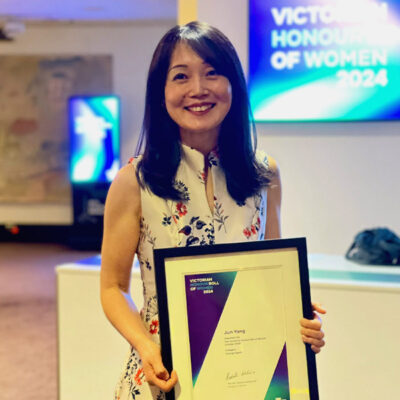Menopause researcher Professor Henry Burger AO awarded Lifetime Achievement Award
By Hudson Institute communications
Congratulations to Professor Henry Burger AO for being awarded the Lifetime Achievement Award for outstanding contribution to menopause, from the International Menopause Society.

The award was announced to mark World Menopause Day on 18 October.
Prof Burger is Emeritus Director and Distinguished Scientist, Hudson Institute of Medical Research. He led Prince Henry’s Institute – now Hudson Institute – from 1969 until 1997.
One of his former PhD students, Susan Davis, was awarded the Distinguished Service Award for outstanding service to the Society.
Prof Burger practised as a clinical endocrinologist and a clinical investigator with major interests in reproductive endocrinology, the endocrinology and management of menopause, and the therapeutic use of androgens in women.
Prof Burger chaired the World Health Organisation’s Scientific Group on ‘Research on the Menopause’ in 1994 and is a Past President of the International and Australasian Menopause Societies.
He was appointed an Officer in the Order of Australia in 1993 and is a Fellow of the Australian Academy of Science and of the Australian Academy of Health and Medical Sciences.
He is author or co-author of more than 600 publications and has won a number of prizes and awards, including the Dale Medal of the British Endocrine Society, Distinguished Physician of the US Endocrine Society (1999) and the North American Menopause Society’s 2000 NAMS/Wyeth Ayerst Perimenopause Research Award and the 2006 NAMS Leadership Award in Androgen Research.
About Hudson Institute
Hudson Institute’ s research programs deliver in three areas of medical need – inflammation, cancer, women’s and newborn health. More
Hudson News
Get the inside view on discoveries and patient stories
“Thank you Hudson Institute researchers. Your work brings such hope to all women with ovarian cancer knowing that potentially women in the future won't have to go through what we have!”





